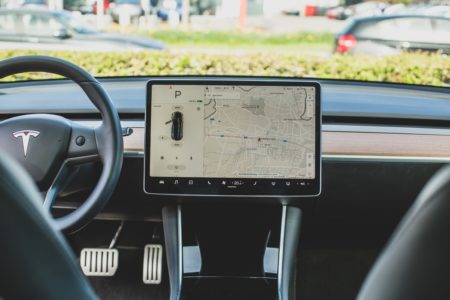1 August 2020
By Roger L. Jones
roger@TheCork.ie
It’s hard to point to a single industry that hasn’t been somewhat altered if not utterly transformed by the presence and innovations of technology.
Smart devices in the home allow us to shop without leaving the house. Technology has made remote working possible for millions of people across the globe. Regular people who couldn’t tell you what Zoom or Monday.com were for a couple of months ago are now video call and remote project management pros.
But what of the auto industry? Always on the cutting edge, cars and their potential have long been tied into visions of the future. We might not be on the precipice of flying cars, but there are significant changes and trends just over the horizon for auto.
Changing business operations
When you consider potential tech trends and changes in the auto industry you shouldn’t just consider the impact on consumers and retailers, but businesses with automobiles at their core.
Tech is only making life easier for everyone from delivery fleet managers to taxi drivers – and is expected to do so for years to come.
While the growth of brands such as Uber and Lyft are common-knowledge success stories at this point, competitor apps are constantly coming out offering consumers a more holistic view of transport in their city, as outlined by DDS Wireless. These companies thrive off of integration of technology – building multi-million dollar industries from very simple ideas powered by digital innovations.
It’s not just the biggest brands or most forward-thinking startups that tech is driving towards a bright future either.
Businesses with huge fleets of trucks are seeing a huge increase in productivity thanks to technology. Drivers can remain in touch with head office to receive route updates on the fly. Fuel cards such as the Circle K fuel card (if you’re new to the concept of fuel cards it’s worth checking out iCompario’s guide) have both saved fleet businesses money and streamlined their operations – centralising all company fuel payments into one account in a move that saves accounts departments across the world hours every month.
This might not be the kind of innovation that helps drivers reach new speeds or gets us further to rows of hovercrafts on motorways, but they’re just as important steps for the long-term future of the auto industry.
The autonomous uprising
The concept of self-driving vehicles has been around for years – long before the kind of tech we associate with modern driving was even considered by the major manufacturers.
In 2020, we still look out onto the roads and see people driving their own vehicles. Despite a continued lack of public interest in the idea of autonomous cars due to high-profile failures and a perceived danger, the industry appears to have its sights set on making them a reality.
Whether drivers like it or not, the slow drive to autonomous vehicles will continue. Companies such as Tesla will continue to make it a focal point of both their production and marketing.
Consumers can expect their first experience of a self-driving vehicle to come in the form of private taxi services or rideshares. This slow integration will use these services to familiarise the general public with the concept before moving it into more consumer markets.
Tests will continue to run to try and make these cars as road safe as possible but this could be yet another example of tech taking its time to transform an industry rather than making its mark overnight.
Improving the customer experience
Whatever industry you’re in, great customer service is essential.
A huge part of what is driving innovative and thoughtful customer service that addresses consumer needs is tech.
Yes, we all know about email newsletters, social media and chatbots – but how is tech making it easier to sell cars and ensure the customer leaves with not just the right vehicle but a smile on their face.
The auto industry is experiencing a revolution in how cars are sold. The last few years have seen eCommerce become a genuine option for manufacturers and retailers for the first time. Not just of the cars themselves, but merchandise and add-ons which help promote brand exposure and loyalty. While the idea of dropping cash on a car you’ve never even seen in person seemed ludicrous at the turn of the century, it’s becoming ever more commonplace. Still not convinced? This Car Wow step by step details the typical process.
Customer service has also made a point of personalising the driving experience. How? Through AI.
The next big trend consumers are likely to notice during their everyday commute is a vehicle that notices when they need their seat adjusted or the temperature turned down. AI will be used to take some of the manual work out of driving without lifting the responsibility entirely from the driver.
However, it’s not all positive. The advancement of tech is leading to vehicles with shorter life cycles. As new innovations come out brands will rush to implement them, leading to current releases feeling obsolete. This doesn’t exactly chime with a need for a more eco-friendly approach from the industry.
These are just a few ways tech is transforming both the automotive industry and consumer’s relationship with it. This is without mentioning innovations such as predictive maintenance, a further focus on providing holistic security measures and further streamlining the driving experience through remote updates to onboard smart systems.
The future is interesting and potentially very bright for the automotive industry. If it can balance tech innovations with a need for increased sustainability it will have a prosperous 2020s.
220701 Ed L

